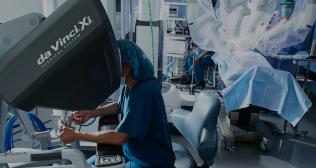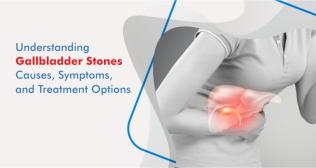
Understanding the Different Types of Bariatric Surgery and Choosing What's Right for You
Bariatric surgery has emerged as a critical tool in the fight against obesity, offering hope and opportunity for individuals struggling to achieve significant weight loss through traditional methods. However, with various surgical options available, understanding the differences between them and selecting the most suitable procedure can be overwhelming. In this comprehensive guide, we will explore the different types of bariatric surgery, their mechanisms, benefits, and considerations to help you make an informed decision about your weight loss journey.
1. Gastric Sleeve Surgery (Sleeve Gastrectomy)
Gastric sleeve surgery involves the removal of a large portion of the stomach, leaving behind a sleeve-shaped pouch roughly the size of a banana. By reducing the stomach's capacity, this procedure limits the amount of food a person can consume, leading to decreased calorie intake and weight loss. Additionally, the surgery alters gut hormones, which can help regulate hunger and improve blood sugar control.
Pros:
- Significant weight loss: Patients typically lose 60-70% of their excess weight within the first year.
- Reduced risk of malabsorption: Unlike some other procedures, gastric sleeve surgery does not involve rerouting or bypassing the intestines, minimizing the risk of nutrient deficiencies.
- Low complication rates: Gastric sleeve surgery has a lower risk of complications compared to more complex procedures like gastric bypass.
Cons:
- Irreversible: Once the stomach is removed, it cannot be reversed.
Potential for long-term complications such as reflux or vitamin deficiencies.
2. Gastric Bypass Surgery (Roux-en-Y Gastric Bypass)
Gastric bypass surgery involves creating a small pouch at the top of the stomach and rerouting the small intestine to connect to this pouch. This bypasses a portion of the stomach and intestines, reducing the amount of food absorbed by the body. Additionally, gastric bypass surgery alters gut hormones, which can improve satiety and metabolic function.
Pros:
- Rapid weight loss: Patients typically lose 60-80% of their excess weight within the first year.
- Resolution of obesity-related health conditions: Gastric bypass surgery can lead to significant improvements or remission of conditions such as type 2 diabetes, hypertension, and sleep apnea.
- Long-term success: Many patients maintain substantial weight loss and health improvements over the long term.
Cons:
- Higher risk of nutritional deficiencies: Bypassing a portion of the small intestine can impair nutrient absorption, requiring lifelong vitamin and mineral supplementation
Increased risk of complications compared to less invasive procedures like gastric sleeve surgery
3 Adjustable Gastric Banding (Lap-Band Surgery)
Adjustable gastric banding involves placing a silicone band around the upper part of the stomach, creating a small pouch that limits food intake. The band can be adjusted by adding or removing saline solution through a port placed under the skin, allowing for customized restriction of food intake.
Pros:
- Reversible: The band can be removed if necessary, restoring the stomach to its original size
- Minimal alteration to the digestive system: Unlike other procedures, gastric banding does not involve cutting or rerouting the stomach or intestines
- Lower risk of nutritional deficiencies compared to more invasive procedures
Cons:
- Slower weight loss compared to other procedures
- Higher risk of complications such as band slippage, erosion, or malfunction
Requires regular adjustments and follow-up appointments for optimal results
4. Duodenal Switch Surgery (Biliopancreatic Diversion with Duodenal Switch)
Duodenal switch surgery combines restrictive and malabsorptive components, involving the removal of a portion of the stomach and rerouting of the small intestine to reduce food absorption. This procedure leads to significant weight loss and can result in favorable changes in gut hormones and metabolic function.
Pros:
- Highest percentage of excess weight loss compared to other procedures.
- Effective resolution of obesity-related health conditions, including type 2 diabetes and hypertension.
- Potential for long-term weight maintenance and health improvements.
Cons:
- Increased risk of nutritional deficiencies, including protein, vitamins, and minerals.
- Higher complexity and potential for complications compared to less invasive procedures.
- Requires strict adherence to dietary guidelines and lifelong supplementation.
Choosing the right bariatric surgery requires careful consideration of individual factors such as BMI, overall health, lifestyle, and personal preferences. Consulting with a qualified bariatric surgeon who can assess your unique situation and provide personalized recommendations is essential for making an informed decision. Remember, bariatric surgery is not a one-size-fits-all solution, but with the right approach, it can be a powerful tool for achieving long-term weight loss and improved health.
Categories
Clear allMeet the doctor

- General Surgery | General Surgery
-
20 Years
-
1100



















